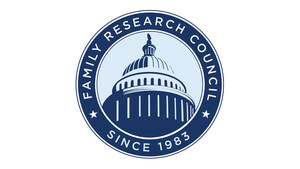WASHINGTON, Nov. 29, 2010 /PRNewswire-USNewswire/ -- In a new paper released today by Family Research Council's Marriage and Religion Research Institute, Dr. Patrick Fagan demonstrates that adoption improves children's lives significantly.
(Logo: http://photos.prnewswire.com/prnh/20080930/FRCLOGO)
The paper, titled, Adoption Works Well: a Synthesis of the Literature, can be downloaded at www.marrifrc.org. Fagan is Senior Fellow and Director of the Marriage and Religion Research Institute (MARRI), which examines the relationships among family, marriage, religion, community, and America's social problems, as illustrated in the social science data.
"Adoption is an act of love that has profound implications for the lives and well-being of both children and parents," said Fagan. "It is love expressed by a birth-mother who gives-up a child for whom she cannot provide to parents who want to give love to a child for whom they long desperately.
"We have quantified how adoption benefits children in a variety of ways, which quantifies what most of us know intuitively: adoption changes lives for the good. We are issuing the paper at the end of National Adoption Month, but there is never a time when drawing attention to adoption is not a good idea," Fagan said.
Fagan noted that many adopted children move to materially advantaged homes with no or few children, where they are nurtured by supportive, focused parents. Very early adoptions (those that take place within the first year of the child's life) produce the best outcomes. Ninety percent of adopting Americans view the practice in a positive light, and a decade after adopting, less than 15 percent express any regret. In fact, most feel grateful.
Adoption Works Well identifies certain factors as contributors to a successful adoption, such as flexible, yet consistent and engaged parenting; sensitivity on the part of the adoptive mother; and residing in a densely populated area. Additionally, married parents adjust better than unmarried parents, and households with more adopted children—but a smaller overall number of children--are more likely to produce a positive, stable adoption.
Adopted children see mental health providers less than children from any other family structure (except for intact families). Furthermore, adoption affects a child's educational performance: Adopted boys have higher reading scores than the general population, and one study showed only 7% of children adopted in infancy repeat a grade, compared to 12% of children in intact families.
Fagan concludes: "Adoption is a remarkable act by generous people who offer their financial resources, attention, affection and time to give young children a better chance in life. Though not without difficulty for some, compared to what life offered them initially, adoption makes an enormous positive difference. For the overwhelming number of those who adopt and are adopted, it works very well."
SOURCE Family Research Council
WANT YOUR COMPANY'S NEWS FEATURED ON PRNEWSWIRE.COM?
Newsrooms &
Influencers
Digital Media
Outlets
Journalists
Opted In



Share this article